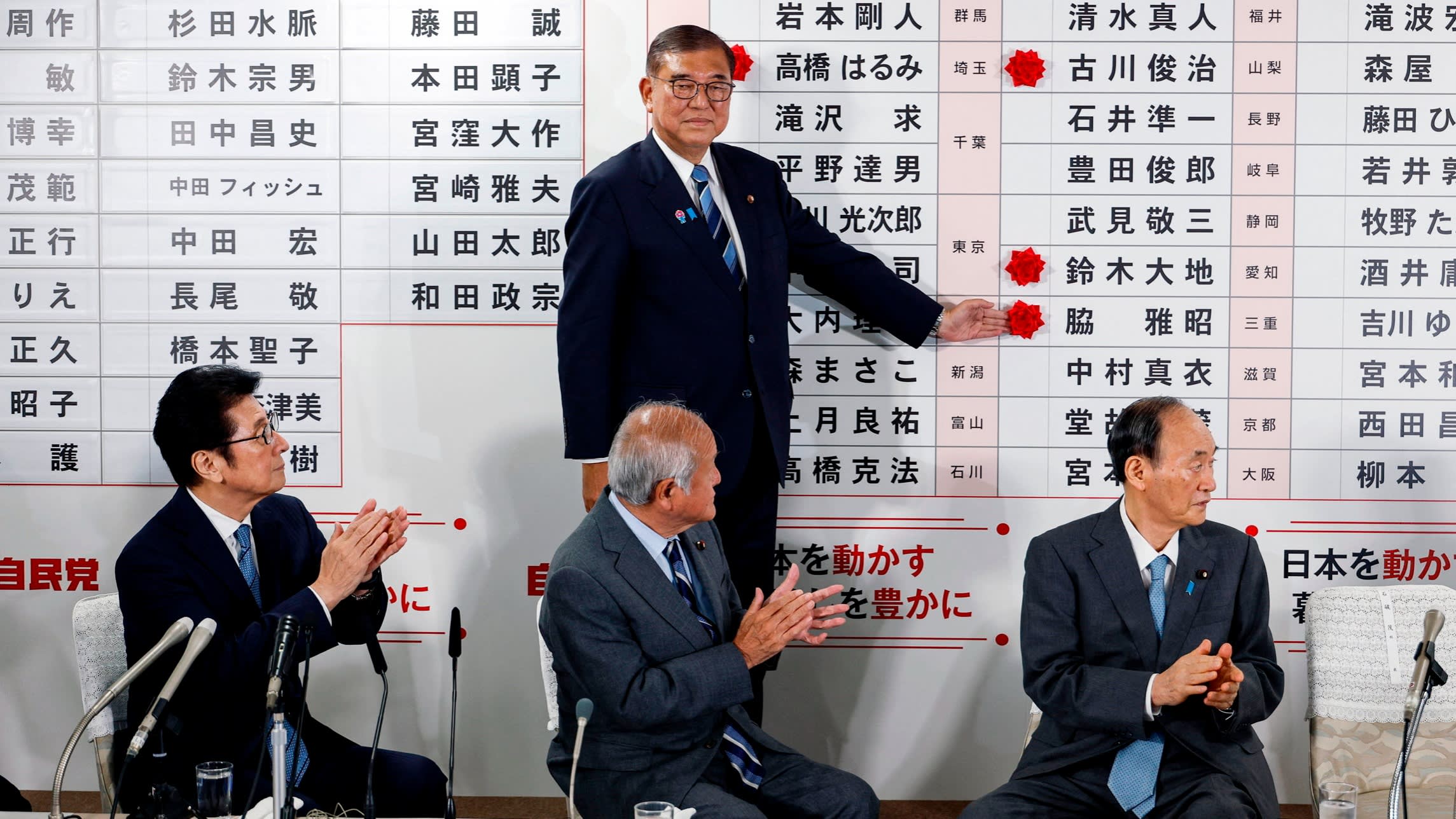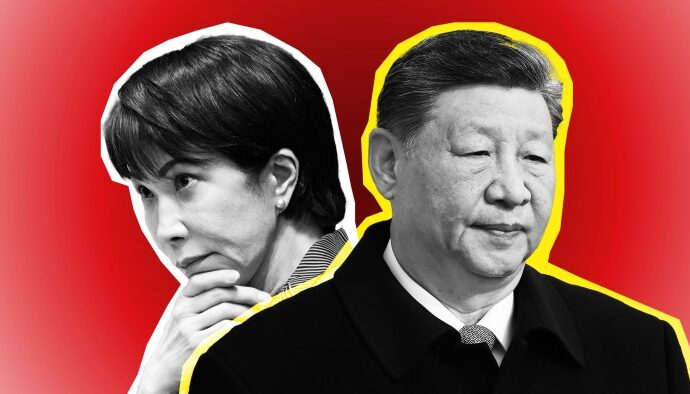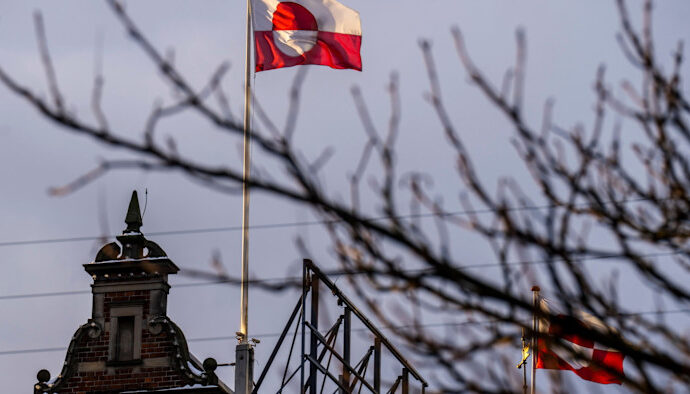
Japan’s Prime Minister Shigeru Ishiba appeared determined to battle on in office on Sunday, despite a heavy setback for his Liberal Democratic party in an election fought over the rising cost of living and immigration.
Speaking as results started to emerge in Sunday’s election for just over half the seats in the upper house, Ishiba told reporters that he would “continue to take responsibility for national issues”.
An exit poll published after voting ended suggested the ruling LDP and its coalition partner, Komeito, would lose their combined majority in the upper house of Japan’s parliament.
By the early hours of Monday in Tokyo, with around 16 seats left to call, it looked as though the ruling bloc would fall short of the 50 it needed to remain in outright control of the 248-seat upper house.
Ahead of the election, the bloc held a total of 141 seats, and retains 75 that were not contested in Sunday’s vote.
Within hours of polls closing, Ishiba had begun to come under pressure from within his own party to step down, said people familiar with the situation. A resignation would set up a leadership race within the LDP, which still maintains fragile control over the more powerful lower house.
Ishiba is due to hold a press conference later on Monday, following a meeting of the LDP’s senior leadership.
As well as fighting low approval ratings, Ishiba has been struggling for weeks to reach a deal with the US over tariffs, which will hit Japan’s automotive industry hard and come into effect on August 1, unless an agreement is struck.
“I will tackle the tariff issue with all my heart,” Ishiba told reporters on Sunday night, playing down suggestions that he might resign.
Advances for smaller parties, which appeared likely according to the exit poll conducted by Japan’s state broadcaster NHK, would add to the turmoil, forcing the LDP bloc to seek wider partnerships to continue governing.
Yuichiro Tamaki, who leads the populist Democratic Party for the People, which appeared on course to win at least 16 seats, said he had “no intention of co-operating with the administration”, adding: “It is difficult to work with a government that is not keeping its word.”
Yu Uchiyama, a political scientist at the University of Tokyo, said voters appeared to have made a strong judgment against Ishiba, and punished the LDP’s handling of the rising cost of living.
“The government insisted on cash handouts. The opposition campaigned for a reduction of consumption tax. The tax idea was more appealing to voters,” said Uchiyama, who added that the expected gains for the Democratic Party for the People and far-right Sanseito parties showed that both had been more effective users of social media than the incumbents.
“A shock would be good for the LDP,” Kenichi Moribe, a voter in his seventies, told the Financial Times on his way to a polling station in Tokyo’s Setagaya ward. “Japanese people have always wanted things to be stable, and the LDP have taken advantage of that for too long”.
The level of public interest in the upper house election is unusually high, and campaigning — particularly by a number of small, radical and in some cases overtly xenophobic parties — has been unusually intense.
A record 21.5mn voters cast their ballots in early voting and polls last week suggested that overall turnout would be high for an upper house election. Populist campaigning has included pledges of significant tax cuts.
Junko Matsuo, a 67-year-old part-time midwife, said it was 20 years since she last voted. She was galvanised by seeing how difficult life was after her daughter became a single mother and moved in with her last year.
Matsuo said she would vote for Sanseito, which has weaponised the rising cost of living and the influx of foreign workers against the incumbent LDP.
“The future isn’t looking good and I want to see what change is like,” she said.
Some polls had predicted the Sanseito party, which was widely considered a fringe movement in previous national elections, would be a big winner in Sunday’s election, which allots victories both in single seat races and by proportional representation. The party secured at least 11 seats, giving it potentially significant leverage.
One of the earliest seats to be called by Japanese media on Sunday night was for Sanseito’s Saya Ohgi, a jazz singer who was standing in Tokyo and campaigned prominently on the “Japanese first” slogan that has become her party’s catchphrase.
Several people approached by the FT at polling stations in Tokyo said the rising cost of food was a factor in their voting, but that it was up to the electorate to be serious about picking a party that could work in credible partnership with the LDP. Sanseito, said Hidetoshi Tase, a 55-year-old lawyer, was just a fad.


